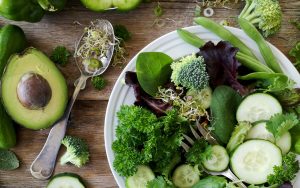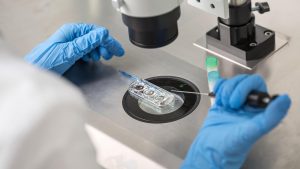Low sperm count can often be influenced by dietary and lifestyle choices, including factors such as a deficiency in zinc, insufficient vitamin intake, smoking, and even the type of underwear worn. Making healthy changes to your diet can significantly contribute to improving both the quantity and quality of sperm.
Here are some dietary recommendations to improve your sperm count:
1. Zinc:
Numerous studies have shown that zinc enhances sexual health, increases testosterone levels, and improves sperm motility. Foods rich in zinc include nuts, beans, turkey, and seafood such as lobster, oysters, and mussels.
2. Antioxidants:
Consumption of antioxidants has been linked to increased sperm count and seminal volume. These powerful compounds combat free radicals, which can damage sperm and increase DNA fragmentation. Antioxidant-rich foods include nuts, berries (blueberries, goji berries, raspberries, strawberries), artichokes, beans, spinach, and even dark chocolate.
3. Vitamin D:
Adequate vitamin D levels have been associated with improved testosterone levels and enhanced sperm motility. Consider incorporating foods like oily fish (salmon and tuna), cheese, eggs, yogurt, and mushrooms into your diet to increase your vitamin D intake.
4. Vitamin E:
Vitamin E, along with antioxidants, has been shown to improve sperm production and protect against free radicals that may harm sperm. Foods high in vitamin E include plant-based oils (sunflower and soybean oils), nuts, seeds, green leafy vegetables (spinach, broccoli), and fortified juices.
5. Folate:
Deficiencies in folate have been linked to increased DNA fragmentation in sperm and poor sperm health. Boost your folate intake by consuming green leafy vegetables (such as spinach and Brussels sprouts), asparagus, nuts, beans, fortified cereals, enriched flour products, and fruits and juices (especially oranges and orange juice).
6. Vitamin B12:
Research suggests that vitamin B12 is essential for overall sperm health, improving motility, sperm count, and reducing DNA fragmentation. Foods rich in vitamin B12 include fish, seafood, meats, poultry, dairy products, eggs, and fortified breakfast cereals.
7. Vitamin C:
Vitamin C is an antioxidant crucial for sperm health, improving concentration, motility, and morphology. Sources of vitamin C include citrus fruits and their juices, sweet peppers, fruits like strawberries and kiwi, vegetables such as tomatoes, broccoli, Brussels sprouts, and fortified breakfast cereals.
8. Omega-3 fatty acids:
Omega-3 fatty acids, known for their benefits to eye, cardiovascular, and neurological health, have also been shown to enhance sperm count, motility, and morphology. Foods rich in omega-3s include fish and seafood (especially tuna and salmon), seeds, nuts (such as walnuts), and eggs.

Incorporating these nutrient-rich foods into your diet can potentially improve your sperm count and overall sperm health. However, it’s important to remember that individual circumstances can vary, and consulting with a healthcare professional or fertility specialist is advised for personalised guidance.
Learn more helpful tips on how to improve and promote male fertility with our guide. Contact us today to begin your fertility journey!






